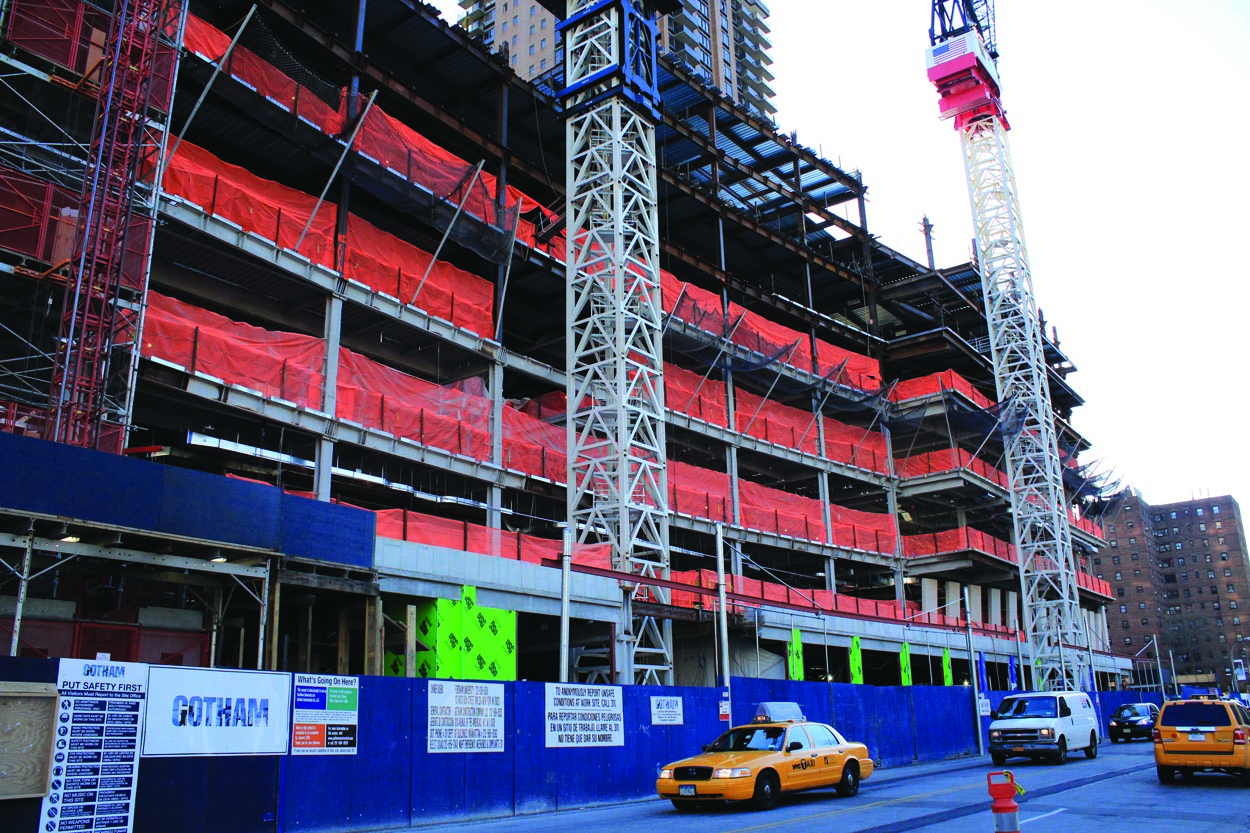Provost Discusses Business School Expansion
April 18, 2012

The recent announcement that the Gabelli School of Business (GSB) would be allocated space in the new law school building currently under construction left many with a lot of questions. The Observer spoke with Fordham University Provost Stephen Freedman to learn more about curricular changes coming to Fordham College at Lincoln Center (FCLC) in the next few years.
The Observer: Who brought the idea up first of bringing GSB to Lincoln Center?
Stephen Freedman: The possibility for a GSB or business school presence on this campus has been in conversation for many years. There have been off and on conversations about a business major or a business program and how it might be constructed at Lincoln Center.
In my role as chief academic officer, I am often involved with deans in conversation in changing the curriculum and how one might go about both graduate and undergraduate programs. So I’m often very interested in program and curricular changes, depending on student interest and faculty perspective.
Observer: What, at this point, is faculty at FCLC input being used for in the planning process?
S.F.: I’ve asked them to look through the curriculum and how they may be involved with our faculty across schools in looking at the kind of programs that would appeal to a broader range of students. I was with some students over the weekend and they met in a Mandarin class. Neither of them are from China and they both took Mandarin for different reasons. Neither of them are in the business school, both of them are in FCRH, but they thought the course would really have a tremendous impact in their thought process in terms of their profession. I’m very enthusiastic about that.
I really see students sometimes enroll in courses they see as peripheral to their interests, but it changes their lives in terms of how they see themselves in the world and their relationships culturally and socially. I think that’s what I’ve asked the faculty at FCLC to do is reflect on those kind of multidisciplinary experiences and how we might together as faculty view curricular change.
Observer: Do you think this new program and new body of students going into core classes here will in any way affect the new core at FCLC?
S.F.: My sense is the core should continuously be reviewed and modified. That may not be a position that faculty would necessarily hold to. As we implement the core, we should look for ways to enhance it. In the sciences, for example, I would like to infuse in the broader curriculum elements of disciplines that are examined in a different kind of way. So if you’re studying sociology, having a biological basis to understand that would be very interesting.
I’m only speaking as a person, but I would like to see curriculum continuously reviewed and reinterpreted. That’s not necessarily what should happen—the faculty needs to make those determinations, but in my leadership, those are the kinds of issues that I like to stress.
Observer: Is there a deadline for the decisions to be made, before the building opens?
S.F.: We have to plan as most universities do. We have to market programs, we have to prepare marketing materials and brochures. For example, I have given faculty at GSB and faculty at FCLC the next year or so to think about the conversations you and I have had about the curriculum.
There is no point in making a decision hastily about academic programs, they do require a good deal of thought and careful reflection in terms of faculty lines, the courses at each level of the four years, the numbers of students involved and the depth and breadth of courses involved. I could spend hours on what would have to be discussed in order to make good decisions.
We have a huge opportunity in the new residence hall being built and new space being available. We have no idea really how successful we will be in the market place until we do the market research in more depth and until we see the numbers of applications and the kinds of students that apply to these programs. We also know that the world of higher education is changing pretty significantly, and we need to be adept at reacting to changes.
Observer: You bring up applications. With the two percent decrease in applications to FCLC this year and the 20 percent increase in GSB applications, what sort of improvements do you see this having on the Lincoln Center campus?
S.F.: I’m actually very excited and enthusiastic about the future of Lincoln Center. When I think about this campus and I think about the future, I see huge opportunities for students studying on this campus in 2016, 2017 and 2018, not to say that the experience now isn’t wonderful.
What we have is an opportunity to think about the curriculum in the context of the future of the institution, and for FCLC, there are lots of possible curriculum innovation in the arts and sciences that can be put forward. I think of ways we can engage our faculty and engage our students in how we can create a new vibrant community of learners at FCLC to take advantage of the new residence hall, a new community dynamic.








